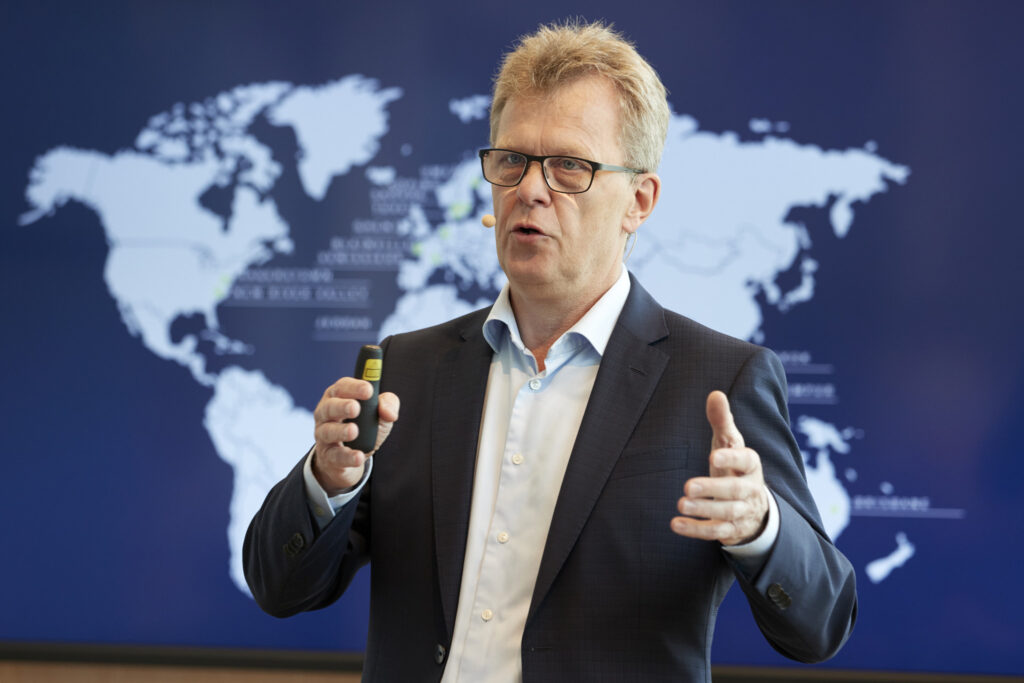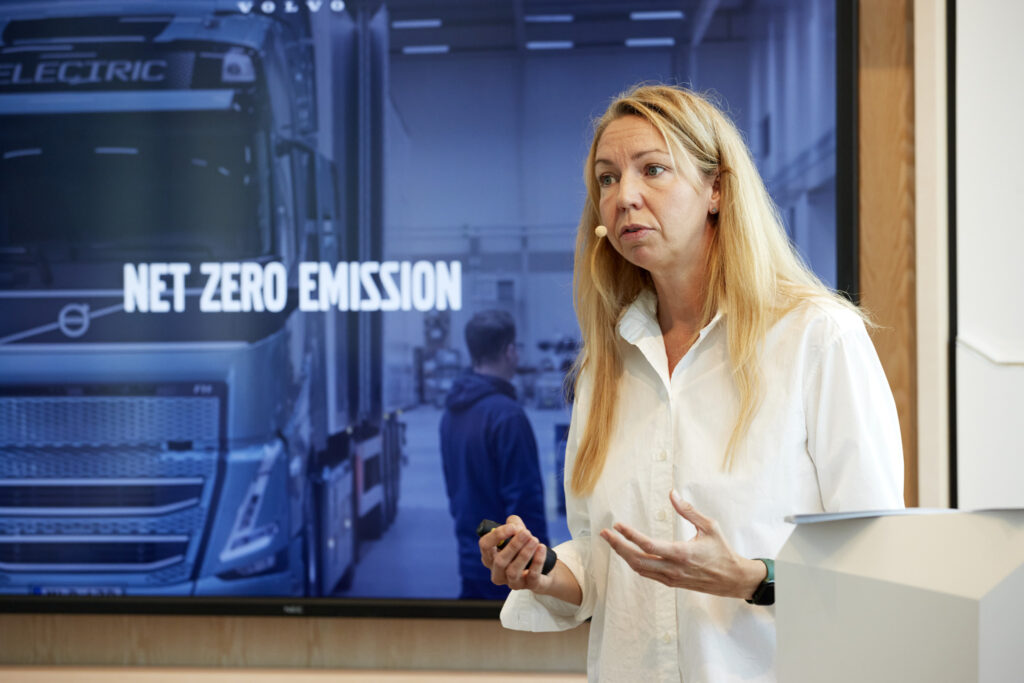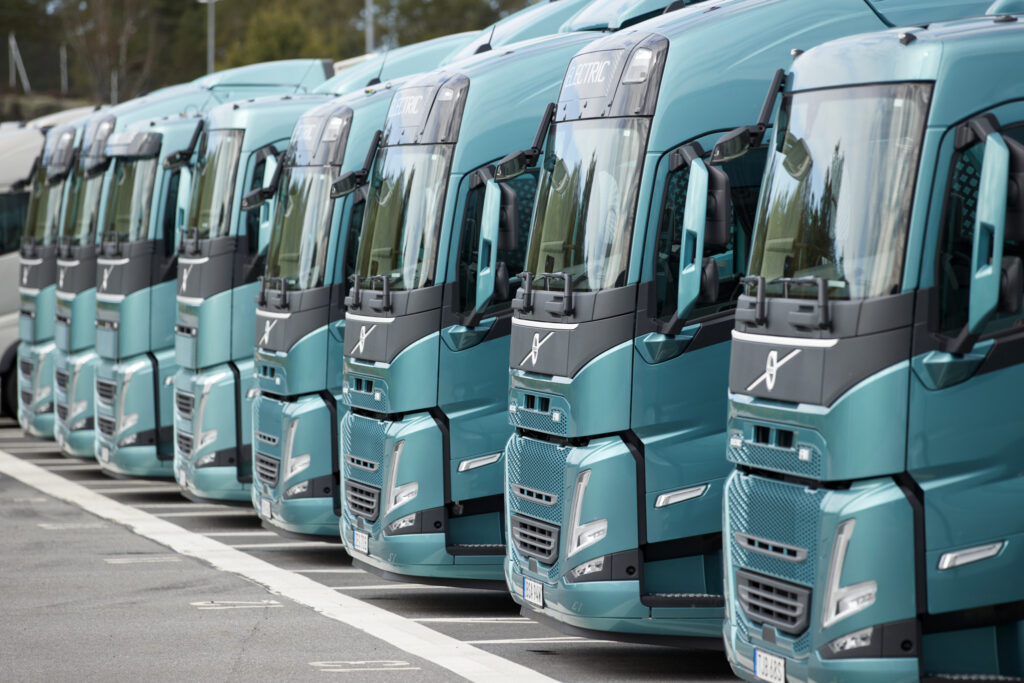Volvo expands electric truck production, sees carbon pricing as key to zero-emissions future
Zero-emissions trucks are beginning to roll off global assembly lines, and Volvo Trucks sees carbon pricing as a key tool to fund the charging infrastructure that will keep such equipment on the move.
“We need to speed up the shift and we need to do it now. Public charging networks will be a key to scale,” head of product management Jessica Sandstrom said during a media briefing in Gothenburg, Sweden. “To have long-term ways of handling this, we believe that carbon pricing would be a good way to do it.”
It was a message echoed by Volvo Trucks president Roger Alm.
“We also now need politicians then to support that transformation in legislation, in charging infrastructure,” he said.

Canada introduced carbon pricing in 2019, and the 2022 federal budget committed $780.9 million to support medium-and heavy-duty zero-emission vehicles over a five-year period.
Zero-emissions funding
Volvo Trucks has committed to producing a net-zero-emissions product line by 2040. It has so far accepted orders or letters of intent for about 6,000 electric trucks in 42 countries on six continents.
“Everything has to be electrified. Everything has to be zero-emission,” Alm said.
Different countries are using various funding models to encourage the trucking industry to adopt emerging zero-emissions models.
Sweden covers 20% of such vehicle costs or 40% of the difference between diesel-powered and zero-emission models. Germany charges trucks with Euro 6 diesel engines a set price per kilometer. There are productivity incentives, too. Battery-electric trucks can use bus lanes during rush hour in Oslo, Norway. And the port of Gothenburg, Sweden, offers them a VIP lane.
In Canada, provinces such as B.C. and Quebec add to federal purchase incentives.

Series production begins in Ghent
Volvo now has six battery-electric truck models in series production – North America’s VNR Electric and the European FL, FE, FH, FM and FMX.
The OEM started producing battery-electric trucks in Blainville, France in 2019, focusing on refuse and distribution models. The VNR Electric was first produced in the U.S. in New River Valley, Virginia. Last year, the heaviest vehicle range entered series production at the Tuve plant in Sweden.
Series production of electric trucks is also beginning at a factory in Ghent, Belgium – already home to Volvo’s largest production site, with an annual capacity of producing around 45,000 trucks. Electric models will be assembled on the same line as their diesel- and gas-powered counterparts, while the battery packs will come from a recently opened plant next to the production line.

‘Not only one single bullet’
“We will not stop the development here. We will continue to do development and we will make these products even better than they are today,” Alm said, stressing there is “not only one single bullet” to reach zero-emission targets.
While battery-electric trucks will be the main technology, Sandstrom said the OEM also sees hydrogen-electric fuel cells as one of the tools needed to address longhaul transportation and heavier loads. It’s developing fuel cells themselves in the joint cellcentric venture with Daimler Truck.
“It could for instance be HVO [hydrotreated vegetable oil biofuel]. It could be bio LNG [liquefied natural gas]. But we also see a future utilizing hydrogen directly into the combustion engine,” she said, adding that hydrogen will also need to be developed with green electricity.
Last year, Volvo sold a record 147,421 trucks across the world. And the battery-electric heavy-duty trucks among them accounted for just under half of such vehicles overall.
“We have a huge responsibility as a truck manufacturer and as an OEM,” Alm said. “We need to change our way of living and our way of acting and our way of being.”
Have your say
This is a moderated forum. Comments will no longer be published unless they are accompanied by a first and last name and a verifiable email address. (Today's Trucking will not publish or share the email address.) Profane language and content deemed to be libelous, racist, or threatening in nature will not be published under any circumstances.
Good for Volvo to provide an alternate product.
However, EV’s are a wrong headed approach generally speaking.
The Electrical power is not available at the scale required to support this move to electrification and China and India are basically not on side as they continue to build coal fired plants.
CO2 is good for plants, just remove the particulate from the air, as technology continues to do so.
The sun has a diameter 109 times that of the earth, and has something to do with any climate change, along with moisture and clouds.
We are being moving in a direction not supported by fundamentals, but promoted by Globalist who are restricting our Freedoms and are having detrimental affects on the poor versus any Climate concerns.